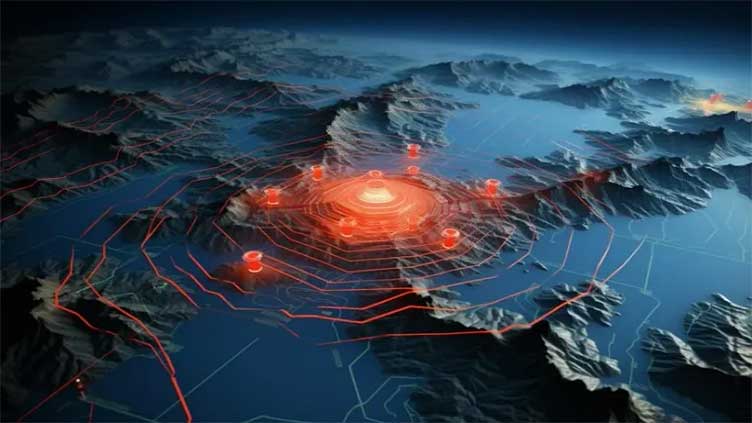AI can predict earthquakes with stunning accuracy

Technology
It can detect earthquakes even seconds before they really occur
(Web Desk) - Predicting earthquakes has been one of the most challenging tasks in science.
For decades, researchers have sought reliable methods to foresee these natural disasters to save lives and reduce economic damage.
Now, a new player is changing the game: Artificial Intelligence (AI). Recent advancements suggest that AI might hold the key to predicting earthquakes with a level of accuracy never before achieved.
But how does AI accomplish this, and what does it mean for the future of earthquake preparedness?
Earthquakes result from the sudden release of energy in the Earth’s crust, which creates seismic waves. Despite years of study, predicting the exact time, location, and magnitude of an earthquake remains an elusive goal for seismologists.
The primary reason lies in the sheer complexity of the Earth’s geological systems. These systems involve countless variables and chaotic processes that are difficult to model with traditional methods.
The researchers at the University of Berkeley, along with the California Governor’s Office of Emergency Services, have developed a new application called MyShake which can detect earthquakes.
The application has been designed to function as a crowdsourced detector that collects motion data from phones across the West Coast - ranging from California up to Washington State - and sends alerts based on the location of the phone.
“The amount of warning varies from a few seconds to tens of seconds depending on the location of the quake and the availability of phones,” said Richard Allen, PhD, the director of the University of California Berkley’s Seismology Lab, who worked in the development of the tech.
This application and the usage of artificial intelligence to detect earthquakes even seconds before they really occur can create much difference and save lives.
Speaking about this possible breakthrough, a geophysicist at Caltech Tom Heaton said, “I’ve studied earthquakes for more than 50 years and I have seen many studies from scientists who reported precursory phenomena to significant earthquakes."
“In my experience, no one has developed a system to predict earthquakes. I strongly believe that this is a problem in self-organizing chaos. This is an important field of physics that is mostly unfamiliar to earth scientists," he added.
In the case of Japan, which is one of the most active earthquake hot spots in the world, when a 7.1-magnitude earthquake rattled the country, the first-ever “megaquake advisory" of the Japan Meteorological Agency was issued which warned of a “higher than normal” chance of another and stronger quake.
However, the agency later stated that the warning doesn’t mean certitude. “Information that predicts earthquakes by specifying the date, time and location is a hoax,” read the statement.
“Most previous attempts focused on the very complex physics of earthquakes,” said Sergey Fomel, a geoscientist at the University of Texas at Austin who headed a seven-month earthquake forecasting trial in China.
The results of the test were published in the Bulletin of the Seismological Society of America and were found to be exceeding expectations.


